2025 enrolments are now open. Enquiries welcome 9560 6371. Book a tour or Enrol now.

English
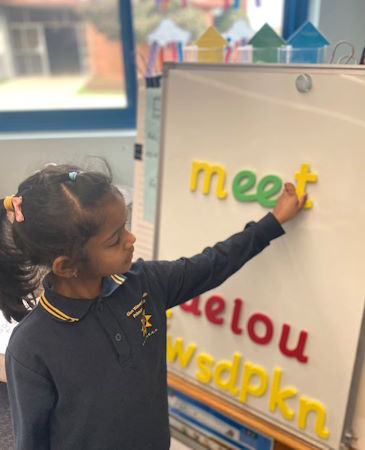
The study of English is an important life skill that gives students the foundation to communicate, understand, and share ideas with others. Through learning to read, write, speak, and listen, children develop the skills they need to access knowledge across all subjects and to express themselves clearly and confidently. Strong English skills also support problem-solving, creativity, and critical thinking, which are essential for success at school and in everyday life. By building these abilities early, students are equipped with the tools they need to thrive both now and in the future.
In the Victorian Curriculum F-10 Version 2.0, the English curriculum includes two learning areas: English, and English as an Additional Language (EAL). Students for whom English is not their first language have been provided the EAL curriculum by the VCAA. The EAL curriculum supports both their language needs and proficiency. The curriculum sets out what students are expected to learn and is designed as a continuum of learning. The three areas of study are Reading and Viewing, Writing and Speaking and Listening.
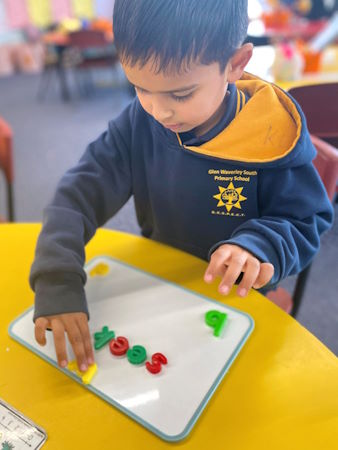
The Literacy Block at GWSPS aligns with evidence-based best practice, as supported by the Victorian Government. Rather than teaching Reading and Writing as two separate lessons, we implement a two-hour integrated literacy block, which offers a powerful and efficient way to develop students' reading, writing, speaking and listening skills by connecting them in meaningful ways. An integrated literacy block helps students see the purpose of what they're learning, apply skills across contexts, and deepen their understanding. It also provides more time for authentic reading and writing experiences, strengthens vocabulary, and builds comprehension by linking oral language, grammar, and content knowledge, which students are then able to produce in their written work.
The daily literacy block covers:
- Phonemic Awareness (for Foundation and Level 1/2)
- Phonics & Word Study
- Vocabulary
- Reading Fluency & Comprehension
- Grammar & Syntax
- Writing
In line with the Victorian Teaching & Learning Model 2.0, the integrated literacy block is focused on how students actually learn, with explicit teaching at the centre of the model. Explicit teaching is a highly effective, structured approach that is especially powerful for literacy development. It involves clearly stating learning goals, activating prior knowledge, modeling skills (through “I do, we do, you do”), scaffolding practice, and ongoing monitoring with formative feedback. This clarity and structure directly benefit attention, memory, retention and recall.
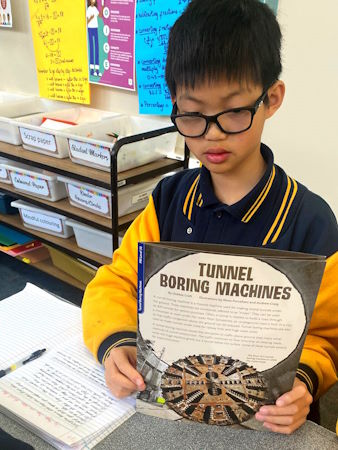
Speaking and Listening are the foundations for the development of all literacy skills. Students are encouraged to speak confidently, clearly and fluently and to listen attentively. They learn to listen to, read, view, speak, write, create and reflect on increasingly complex and sophisticated spoken, written and multimodal texts with accuracy, fluency and purpose.
The explicit teaching of reading requires a structured pathway that moves students from learning the foundations of phonics and practising with decodable texts, to engaging with a wide range of texts of increasing complexity. Within the block, students build decoding skills, fluency, and vocabulary through explicit teaching. As they progress, they apply these skills in meaningful reading experiences that develop comprehension and critical thinking as they confidently move from “learning to read” to “reading to learn.”
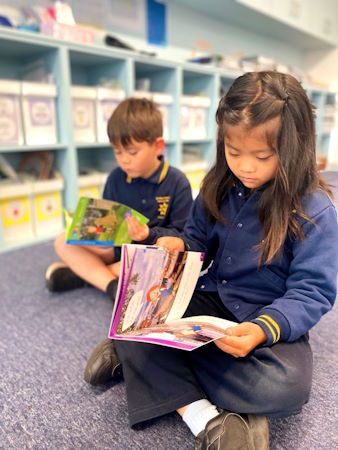
Through their writing, students are given opportunities to practise and apply skills at the word, sentence, and text level in a connected way. At the word level, students build spelling, vocabulary, and grammar knowledge; at the sentence level, they learn to craft clear and varied sentences for different purposes; and at the text level, they organise ideas into cohesive pieces of writing. This structured progression allows students to see how the smaller building blocks of language combine to create meaningful texts, strengthening their ability to write with accuracy for a variety of purposes.
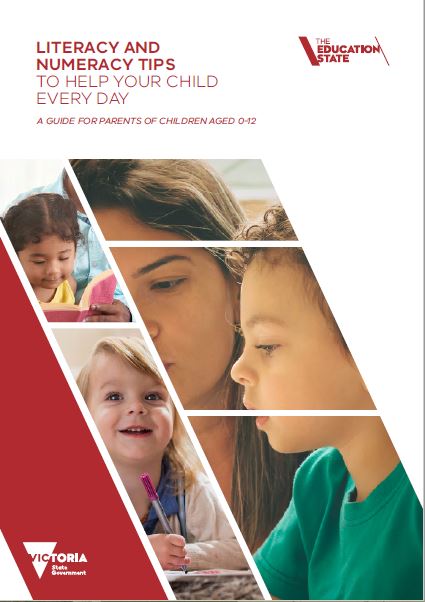
Literacy and Numeracy Tips for Parents
The Department of Education released a helpful resource, 'Literacy and Numeracy Tips to Help Your Child Every Day' which provides handy tips and ways you can help your child develop literacy and numeracy skills. It provides fun, inexpensive, accessible and practical activities you can do with your child at home.
